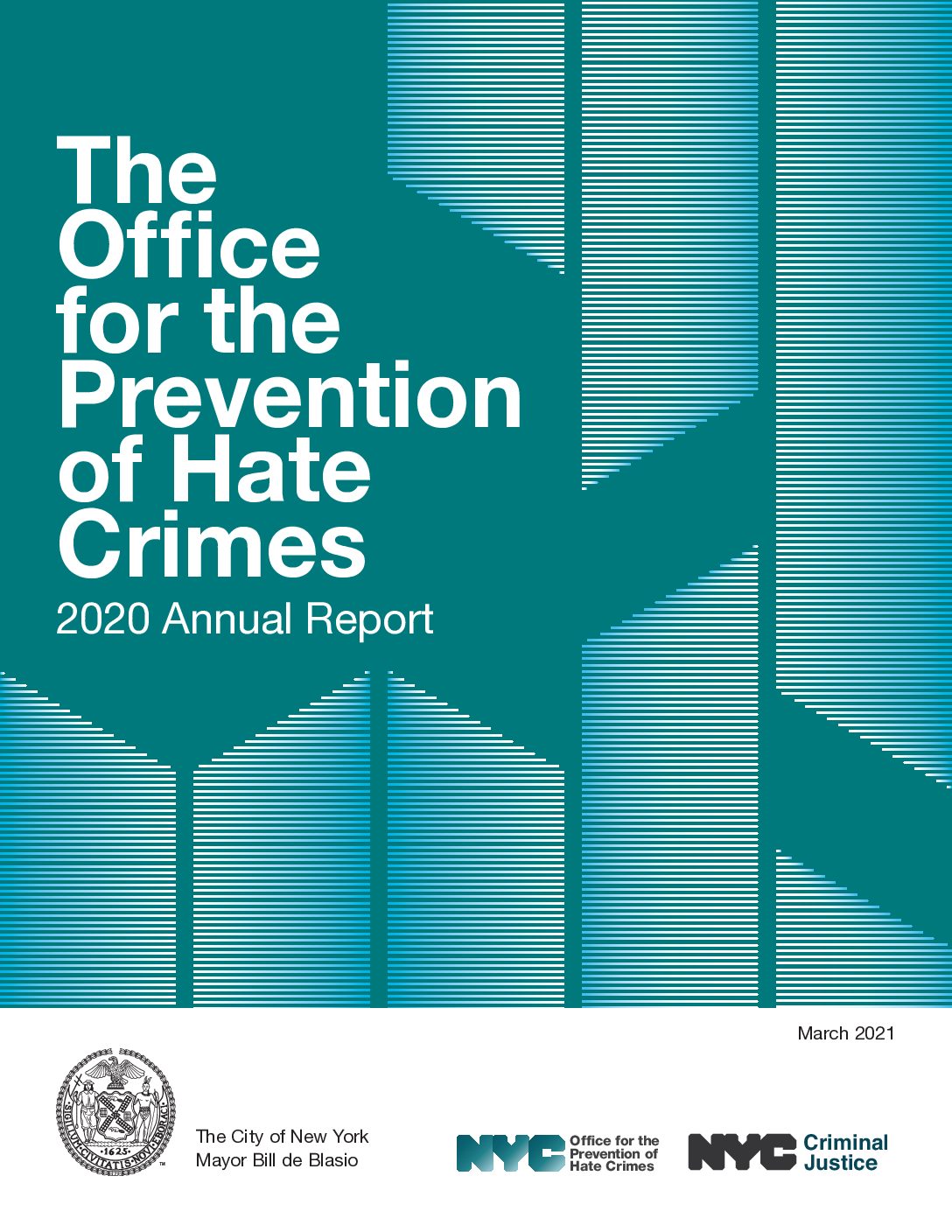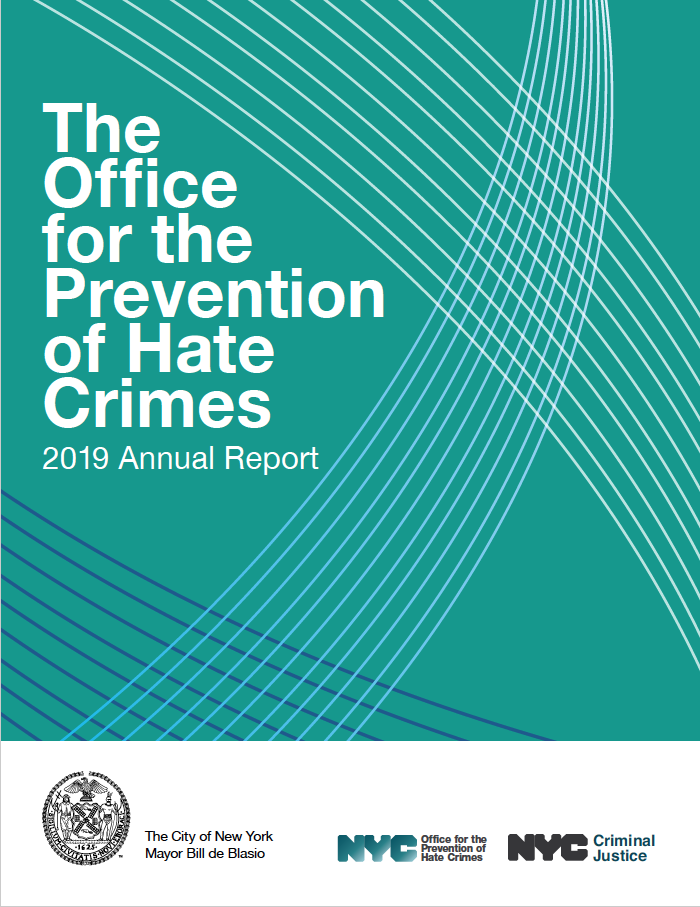Office for the Prevention of Hate Crimes
Issue
New York State Penal Law defines a hate crime as any offense that is motivated in whole or substantial part by a belief or perception of a person, a group, or a place identified with a particular protected characteristic, including “race, color, national origin, ancestry, gender, gender identity or expression, religion, religious practice, age, disability or sexual orientation.” New York City defines a bias incident as identity-based verbal or discriminatory harassment that does not rise to the level of a hate crime and does not involve a physical attack, a threat of attack, or property damage.
Bias-motivated crimes strike at the heart of a victim’s identity and create insecurity and fear. On an individual level, research shows that victims of hate crimes are particularly vulnerable to symptoms of post-traumatic stress disorder and are more likely to suffer from health issues and struggle with employment, leading the U.S. Supreme Court to recognize that hate crimes “inflict distinct emotional harms” on their victims.
As we have seen, hate crimes create a psychological impact extending far beyond the individual victim. A hate crime against an individual based on identity incites fear in those who share the victim’s identity; a harm against the individual becomes a harm against the entire community to which the victim belongs. That fear also spreads to others who share those identities — not just in the immediate surrounding neighborhood or borough, but even nationally and internationally. By targeting a group as “other” and weakening a sense of belonging, hate crimes undermine the democratic principles and tenets of diversity and inclusion that are the foundation both of New York City and of the United States.
Hate crimes too often go unreported, frustrating efforts to address them. Without an accurate accounting of hate crimes, both early identification and prevention become more difficult to accomplish. A further breakdown of NYPD hate crime data by category, with additional information on arrests, is available on OPHC’s website.
Solutions
The NYC Office for the Prevention of Hate Crimes (OPHC) was launched in September 2019. OPHC takes a holistic approach to prevent and respond to hate crimes, develop and coordinate community-driven prevention strategies to address biases fueling such crimes, and foster healing for victims and their communities.
OPHC partners with community-based organizations to elevate their important grassroots work through the Community Advisory and Services Team (CAST) and Partners Against The Hate (PATH Forward) initiatives, which convene more than 80 community-based organizations that serve communities most vulnerable to bias-motivated incidents and hate crimes. Through PATH Forward, OPHC also offers Hate Crime Prevention Innovation Grants up to $20,000 to encourage New Yorkers to develop creative projects aimed at reducing hate violence and promoting community respect.
OPHC coordinates the City’s efforts through its Interagency Committee on Hate Crimes (IAC) consisting of over 20 city agencies and all five District Attorney Hate Crime Units. It works with partners to develop approaches to prevent hate violence, resources to promote reporting of incidents, and responses for when hate crimes occur. The office also convenes more specialized working groups for rapid coordination, strategy, and responses to hate crimes trends.
OPHC is strategic in using non-law enforcement deterrence, including public education, outreach, and community safety models and preventative best practices. OPHC addresses the concerns of vulnerable communities to help enhance service delivery and data collection around hate crimes; supports restorative justice programming for victims and communities; and develops resources to promote respect and educate on the impact of prejudice, bigotry and hate on individuals and communities.
Visit the OPHC website to access more resources and information on its various initiatives.





